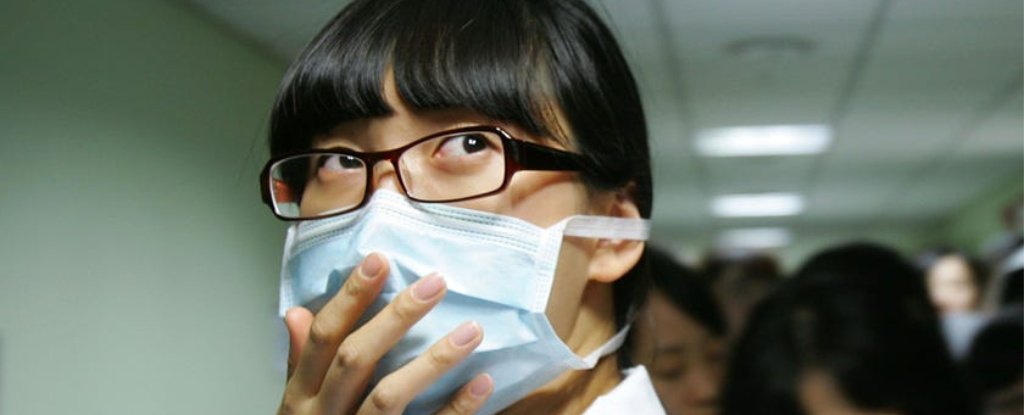No, by all means, YOU should keep drinking it. You should probably get your own civet cats so that you can get a "fresher" product .Oh. Should I be avoiding my civet cat coffee nowadays? You know, I pay a lot of money for that stuff. And boy, does it taste delicious.
It’s got such a rich, smoky taste.
:O O:
-
You do not need to register if you are not going to pay the yearly fee to post. If you register please click here or log in go to "settings" then "my account" then "User Upgrades" and you can renew.
HuskerMax readers can save 50% on Omaha Steaks .
You are using an out of date browser. It may not display this or other websites correctly.
You should upgrade or use an alternative browser.
You should upgrade or use an alternative browser.
Questions for Native and Coronavirus discussion Thread
- Thread starter Native
- Start date
Moving these here
A few Questions:
1. Does the body built antibodies to the virus or can you catch it again after you recover?
2. Is this virus expected to mutate like the seasonal flu?
3. Will this become an annual epidemic like the flu?
Probably more to come.
I’ll take a stab.
1. Yes, and maybe yes. I read that there is a small % of people in China that have been cleared and then were symptomatic with active infection later.

Can You Get Coronavirus Twice? How Long Are You Immune After COVID-19?
Are you immune to the SARS-CoV2 virus after you get infected? If so, how long does this last?
 www.forbes.com
www.forbes.com
2. Already has mutated several times based on sequencing. It’s possible that a mutated strain could be undetected, depending on how the test is designed and/or chance. Also possible that a mutated strain could be infectious to someone who has had a different strain, which is how other viruses work-see link above.
3. Possible. Not enough known about how this novel virus is going to behave, but it looks like it. This article discusses...

New Coronavirus May Circulate Forever As A Seasonal, Endemic Pathogen, Experts Fear
The new coronavirus is likely here to stay.
@Native when will they have a test available to ascertain if someone has already had the virus and have developed anti bodies?
Biomedomics has an IgM/IgG test that was CE-IVD marked recently.
COVID-19 IgM/IgG Rapid Test – BioMedomics Inc.
BioMedomics is a point-of-care diagnostics company that aims to provide novel, rapid point-of-care tests to aid in the diagnosis of critical diseases.
Btw, I’m not trying to steal Native’s thunder...i let him know I might throw a few answers in somewhere...especially when it comes to testing.
including animals like dogs
They call that kay-go-gee (phonetically) in Korea. I was always hopeful the bulgogi that I ate was not kagogi!
@Native ,
The World Health Organization has said there’s no evidence that companion animals such as dogs or cats can be infected with the new coronavirus as of now.
This means that pets that were previously quarantined can now be released.
My question to you, is it okay to say "W.H.O. let the dogs out?"
The World Health Organization has said there’s no evidence that companion animals such as dogs or cats can be infected with the new coronavirus as of now.
This means that pets that were previously quarantined can now be released.
My question to you, is it okay to say "W.H.O. let the dogs out?"
Last edited:
@Native ,
The World Health Organization has said there’s no evidence that companion animals such as dogs or cats can be infected with the new coronavirus as of now.
This means that pets that were previously quarantined can now be released.
My question to you, is it okay to say "W.H.O. let the dogs out?"
Appreciate the link and hard work to set up a joke that woulda still sucked 20 years ago when the song was fresh.
Biomedomics has an IgM/IgG test that was CE-IVD marked recently.
COVID-19 IgM/IgG Rapid Test – BioMedomics Inc.
BioMedomics is a point-of-care diagnostics company that aims to provide novel, rapid point-of-care tests to aid in the diagnosis of critical diseases.www.biomedomics.com
If I understand it correctly, IgM is the initial antibody response post-infection, and is short lived, and IgG is the "memory" antibody that would enable the host to fight off subsequent infections, right?
So when researchers are looking at subsequent immunity, they would be looking for the IgG antibody? Would there be a difference in IgG levels based on the severity of symptoms?
@CrabHusker gave a great answer, but I'm going to be a bit more blunt about it: NOTHING is off-limits as a food to the Chinese, and animals and people live together like few other places on earth. It's impossible to comprehend without going there and seeing it with your own eyes. I lived in Shenzhen, which is as ultramodern as any city in China besides Shanghai, yet I still saw animals being butchered on the sidewalks, including animals like dogs that aren't considered food in many places in the world. The restaurants that served exotic foods would advertise their offerings by displaying the live animals in cages on the sidewalks. There's so much fundamental distrust of one another that it is a cultural habit to literally kill, clean, and prepare the meat next to the table where it will be eaten, otherwise you might spend top dollar for a fresh venomous snake only to be served a dead one of a different variety. I saw toads, frogs, snakes, monkeys, you name it, all ive, waiting outside of an upscale restaurant. There are parts of China that no longer have song birds because they were all killed and eaten during Mao's Great Leap Forward. Even in small apartments in a city of 10+ million people, it was common to keep chickens or ducks in the home with you for food. Because of all of the above in combination with crowded urban conditions, the exotic food markets are rife with filth, squalor, and opportunities for cross-species infections. When a people will literally kill, keep, raise, skin, and eat anything--civet cats, marmots, foxes, bats, et al.--there will be exposure to viruses that are new.
to add to this as well. Chinese (outside of the more upscale areas) have a vastly different sense of personal space and hygiene, not just in relation to the animals they keep as pets and to eat, but also in how they deal with their own waste. My wife shudders in memory of visiting her relatives (and she was even in Taiwan) when she was young
Don't know if this amounts to anything, but came across this PR release just now. FDA grants Roche EUA for Covid-19 test.
(Update – realize this is from March 13th)
(Update – realize this is from March 13th)
Last edited:
Don't know if this amounts to anything, but came across this PR release just now. FDA grants Roche EUA for Covid-19 test.
(Update – realize this is from March 13th)
Just allows more platforms to do the test on. Not that hard of a test really. Basically limits are on sample collection and the supply chain. I could design a non-official one and have it up and running by the end of the week.
New like this is nice because other diagnostic companies are able to adapt their platforms. Our hospital report this morning said they were trying to get their system adapted, but between various supply and validation/approval steps it would take them over a month to come sanctioned. So a place that already running Roche stuff can get onboard way faster than that.
for those who want to see what a wet market looks like and how the growth/spread of viruses can happen easily in one, check out this video.@CrabHusker gave a great answer, but I'm going to be a bit more blunt about it: NOTHING is off-limits as a food to the Chinese, and animals and people live together like few other places on earth. It's impossible to comprehend without going there and seeing it with your own eyes. I lived in Shenzhen, which is as ultramodern as any city in China besides Shanghai, yet I still saw animals being butchered on the sidewalks, including animals like dogs that aren't considered food in many places in the world. The restaurants that served exotic foods would advertise their offerings by displaying the live animals in cages on the sidewalks. There's so much fundamental distrust of one another that it is a cultural habit to literally kill, clean, and prepare the meat next to the table where it will be eaten, otherwise you might spend top dollar for a fresh venomous snake only to be served a dead one of a different variety. I saw toads, frogs, snakes, monkeys, you name it, all ive, waiting outside of an upscale restaurant. There are parts of China that no longer have song birds because they were all killed and eaten during Mao's Great Leap Forward. Even in small apartments in a city of 10+ million people, it was common to keep chickens or ducks in the home with you for food. Because of all of the above in combination with crowded urban conditions, the exotic food markets are rife with filth, squalor, and opportunities for cross-species infections. When a people will literally kill, keep, raise, skin, and eat anything--civet cats, marmots, foxes, bats, et al.--there will be exposure to viruses that are new.
D
Deleted member 3889
Guest
Is this risk for pregnant woman more significant?
Just allows more platforms to do the test on. Not that hard of a test really. Basically limits are on sample collection and the supply chain. I could design a non-official one and have it up and running by the end of the week.
New like this is nice because other diagnostic companies are able to adapt their platforms. Our hospital report this morning said they were trying to get their system adapted, but between various supply and validation/approval steps it would take them over a month to come sanctioned. So a place that already running Roche stuff can get onboard way faster than that.
I heard that swans and reagents are the bottleneck. True?
I heard that swans and reagents are the bottleneck. True?
Schools were canceled and my daughter didn't get to bring in the leprechaun trap. What ya gonna do?


